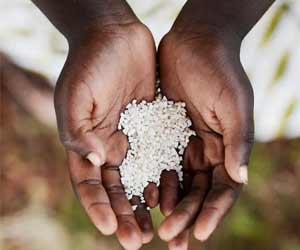Hunger plays a major role on your perception and behavior. The cellular and molecular targets have been uncovered that can be leveraged for the development of therapeutics for pain and weight loss.

‘The cellular and molecular targets have been uncovered in this study that can be leveraged for the development of therapeutics for pain and weight loss.’





That’s the finding of Amber Alhadeff, the winner of the 2021 Eppendorf & Science Prize for Neurobiology. Her research provides new insights into how hunger affects perception and behavior.//Unraveling the mechanisms that underlay these links could aid in the development of targeted therapies for a broad range of human diseases that involve pain and weight control.
“The prize-winning research gives new insight into the complex gut-brain signaling that determines how much food we eat,” said Peter Stern, Senior Editor at Science.
Whether we are hungry or full changes our perception of the world. It can color our mood, affect our ability to make decisions and even influence our willingness to take risks. However, while many of the mechanisms that underlie the neural control of food intake are studied and discerned, much less is known about how perception of other sensations from within the body – interoceptive signals like pain, for example – influence neural activity in the brain’s hunger circuits, and how this shapes behavior.
“Most of us feel hunger every day, often multiple times a day, but we don’t often consciously think about everything that is happening in the body to generate this sensation and when we eat, to make it go away,” said Alhadef, an assistant member at the Monell Chemical Senses Center.
Advertisement
To better understand how sensory stimuli affect hunger circuits, Alhadeff used in vivo neural imaging and found that different macronutrients, such as fat and sugar, in the gut rapidly communicate with the brain via a gut-brain pathway.
“We believe that the results from our research have uncovered cellular and molecular targets that can be leveraged for the development of therapeutics for pain and weight loss,” said Alhadeff.
“In the future, it will be important to determine if long-term manipulation of these neural circuits has effects in disease models, such as models of obesity or chronic neuropathic pain.”
The Eppendorf & Science Prize for Neurobiology recognizes the increasingly active and important role of neurobiology in advancing our understanding of the functioning of the brain and the nervous system. The winner receives $25,000 and publication of his or her essay in the October 29 issue of Science.
“Eppendorf and Science have been presenting this prize together for 20 years. This is an amazing legacy,” stated Eva van Pelt, Co-CEO of Eppendorf SE. “I enjoy watching the careers of our awardees develop over time as they become true opinion leaders in their field.”
Alhadef will be honored at a virtual prize ceremony for the Eppendorf & Science prize for Neurobiology.
Source-Eurekalert












